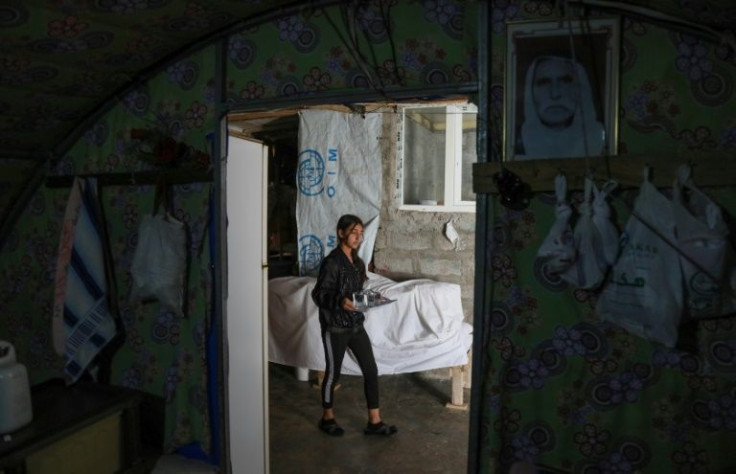ISIS Bride Who Got Child Slave Chained And Let Her Die Of Thirst To Receive Sentence Increase

KEY POINTS
- Germany's Federal Court of Justice partially overturned the sentence of Jennifer Wenisch
- Wenisch was sentenced to 10 years in jail after a child slave she bought in Iraq died of thirst
- The 31-year-old ISIS member's sentence will now be up for review
Germany's top court is expected to impose a harsher sentence on a woman who joined the Islamic State terrorist group, also known as IS, ISIS or ISIL, and was implicated in the death of an Iraqi girl back in 2021.
A Munich court originally sentenced Jennifer Wenisch, 31, of Germany's Lower Saxony state, to 10 years in prison for her role in the 5-year-old's August 2015 death in the Iraqi city of Fallujah, the BBC reported.
Wenisch and her husband Taha al-Jumailly, an Iraqi jihadist who fought for ISIS, bought the girl and her mother, both part of the Yazidi minority, as slaves in Iraq, but the child ended up dying of thirst after she was chained by al-Jumailly and left exposed to the sun.
Despite denying her charges, Wenisch was judged by the Higher Regional Court in Munich as having committed a crime against humanity because she stood by when her husband left the girl to die.
While the court also found Wenisch guilty of being an accessory to murder, it ruled that her case was less severe, prompting German public prosecutors to argue that her 10-year sentence was too lenient.
Germany's Federal Court of Justice, the highest court of civil and criminal jurisdiction, has now partially overturned Wenisch's sentence as it disagreed with the conclusion that her crime was less severe.
As a result, Wenisch's original sentence, nine years for the death of a child resulting from slavery and another two and a half years for membership of a terror group, both to be served over 10 years, will once again be up for review.
Al-Jumailly is still serving a life sentence for genocide, crimes against humanity resulting in death, war crimes, aiding and abetting war crimes as well as bodily harm resulting in death.
ISIS "conducted a genocidal campaign against the Yazidis" and committed atrocities such as sexual violence, mass executions and forced conversions, among other crimes, on the Kurdish minority group, according to the United Nations.
"Meanwhile, many Yazidis remain displaced from their places of origin. Due to continuing tensions, their ancestral homeland in Sinjar is still deprived of the essential stability needed to rebuild their lives, free of fear and intimidation," the organization's Iraq office said in a statement last August.

© Copyright IBTimes 2024. All rights reserved.











